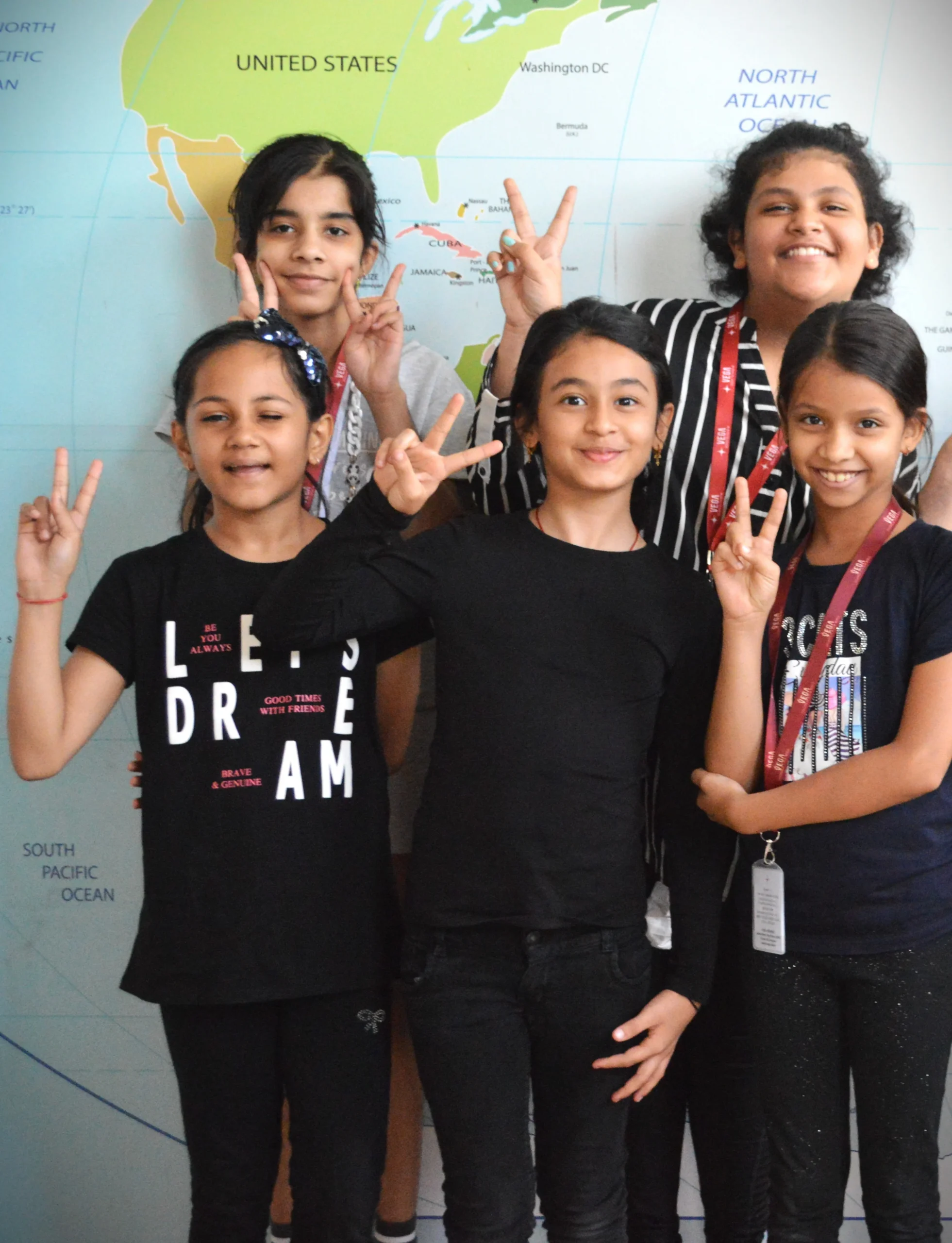School-aged children’s emotional and social development must foster healthy social skills. Children who are taught communication, empathy, collaboration, and conflict-resolution skills are better able to navigate social situations and form enduring connections. Teachers and parents are essential in imparting these critical abilities, which are crucial for both academic achievement and personal development.
These vital abilities may be developed in youngsters by promoting social interactions, offering chances for role-playing, and rewarding good conduct. This method is an important part of kid development as it improves their relationships with their peers and influences their general well-being.
- Foster Empathy
Assist kids with appreciating and comprehending the emotions of others. Talk about feelings and urge them to think about how other people could feel in different circumstances. The cornerstone of establishing solid and fruitful relationships is empathy.
Discuss empathy and understanding using literature, anecdotes, and real-world experiences, Encourage your youngster to examine possible outcomes and consider how their actions could affect other people.
2. Promote Effective Communication
Positive social connections are mostly dependent on effective communication. Children should be taught how to communicate both orally and nonverbally in a courteous and straightforward manner. You may assist children by training them to ask questions and express interest in others, practice discussions, and promoting active listening.
Play out various social situations, such presenting oneself, seeking assistance, or forming friendships,Stress the need of maintaining eye contact and listening intently when conversing with people.
3. Honor Good Social Connections
Praise your kid when they exhibit good social skills, including sharing, lending a helping hand to others, or speaking politely, to reinforce such behaviors. Acknowledgment motivates them to keep using their abilities.
Congratulate them on their efforts to form friendships, settle disputes, or collaborate effectively, “I really liked how you waited your turn and spoke politely” is an example of how to be precise when praising someone so they know what they did well.
4. Organize Social Learning
Training in social skills may be beneficial for certain kids. Games, exercises, or classes centered on certain abilities like sharing, taking turns, or expressing emotions might fall under this category. This type of learning can also be facilitated by group activities in the classroom or after-school programs.

5. Deal with Shyness and Social Anxiety
Some kids may have trouble interacting with others because they are timid or anxious. Assist these kids by progressively boosting their social comfort level, offering comfort, and imparting anxiety-reduction techniques.
Encourage them to begin with one-on-one or small group interactions, emphasize positive reinforcement, and acknowledge minor victories.
6. Provide Social Interaction Opportunities
Encourage your kid to engage in team-based projects, sports, clubs, or group activities so they may learn how to interact with others. Children get the ability to resolve conflicts, form friendships, and collaborate with others as a result of this.
7. Set an example of constructive social behavior
Since children frequently pick up social skills by watching adults, it’s critical to provide a good example. Show how to politely welcome people, strike up a conversation, treat them with respect, and settle disputes amicably. Children are more inclined to copy these behaviors when they witness them.
In summary, school-age children’s emotional, social, and intellectual success depends on the development of healthy social skills. Children are better prepared to handle social situations and form lasting connections when they are taught good communication, empathy, problem-solving techniques, and respect for others.
By providing organized chances for interaction, modeling, and encouragement, parents, educators, and other caregivers all play a crucial part in helping children develop these abilities. Strong social skills help children become more self-assured and contribute to a better school experience. They also help them become well-rounded, compassionate people who flourish in a variety of social situations.
Vega Schools offers holistic education to children in Delhi NCR and is rated among the top Schools in Gurgaon. Its modern infrastructure, facilities, and experienced teachers are a big asset to the learning & development of students, be it for Nursery, Primary or Senior children making Vega Schools the best schools in Gurgaon. For information about admission please visit the Vega Schools campuses in Sector 48 and Sector 76 Gurugram.
